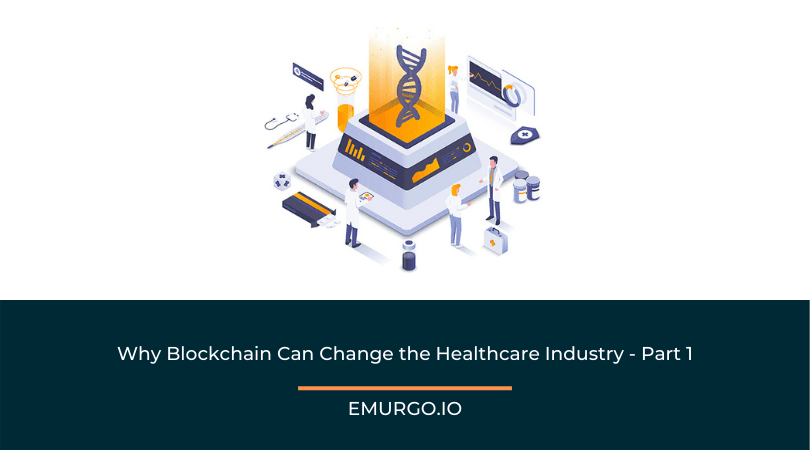
Blockchain technology is fundamentally a distributed online ledger that archives and stores data records such as transactions and any other necessary data according to the governing rules of its protocol.
It is akin to a shared online database that is secured by cryptography and distributed among those who wish to participate in managing the data and agree to the rules of the protocol.
Depending on the type of blockchain technology preferred, the distributed online ledger can be completely decentralized which means that any party may participate in helping to manage the network by maintaining a running copy of the ledger, or the distributed ledger can be private and require administrative access to participate and maintain a running copy of the ledger.
Some networks may prefer a decentralized shared ledger without a centralized third party monitoring the data while some networks may prefer a private shared ledger that requires access due to the sensitive nature of the data that is being shared.
Either way, blockchain is based on well-established cryptographic techniques that enable each party in a network to securely communicate, store, share, and access different types of information in a completely digital and real-time manner.
As all network members store and share data in real-time according to the rules of the protocol, it allows for trustless cooperation among all parties while still recording an immutable audit trail of all previous interactions.
With these immense benefits of a digital technology, blockchain has increasingly been recognized to have the technological capabilities to radically alter a wide variety of markets, including healthcare in the years moving forward.
Let us look at what this revolution spurred by blockchain technology could mean for healthcare and how it can be implemented across the sector.
COVID-19 Has Accelerated the Need for Digital Solutions to Maximize Efficiency
As seen in the above chart, several healthcare endeavors are currently active in developing solutions optimized by blockchain technology, with the amount expected to grow exponentially towards 2025.
There is no need to highlight the importance of healthcare for the prosperity of humanity. It is a center point in the UN’s Universal Declaration of Human Rights.
Nevertheless, healthcare is one of the world’s slowest developing markets due to outdated systems, regulations, and a growing aging population.
Hospitals have operated in relatively identical ways for the last two decades.
Following a demanding 2020 in which healthcare systems worldwide became stretched and stressed due to the global COVID-19 pandemic, the need for more cost-effective solutions and services that can maximize efficiency and deliver quick benefits to those in need has been put in greater focus.
This means services such as quicker delivery of purchased goods and services with better digital tracking capabilities, freer flow of goods and services across borders, verifiable proof of origin of certain goods, and more secure data recording solutions that are also more readily available to stakeholders.
How Blockchain Offers a Product-Market Fit for the Healthcare Industry
Blockchains are incredibly challenging to exploit since they contain many interconnected nodes (servers run by parties) each sharing an identical copy of a constantly increasing chain of data blocks.
Each update cannot be limited to a single node and over 51% of the nodes must be targeted to successfully compromise a network, a task that is practically unlikely for any cybercriminal as it requires a vast amount of very expensive computing power.
Solutions based on blockchain technology can deliver the services mentioned above which reduces organizational costs and leads to increased access to healthcare and quality of services for a greater segment of the population.
Blockchain solutions can move value across borders in real-time without the need for intermediaries, allowing those in need to receive money and goods in a much more efficient manner.
It can be used to digitally tag products and track through international supply chains, guaranteeing the quality of a certain end product.
Regarding clinical data management, using a solution based on blockchain ensures that a patient may essentially use their own password to validate access to information at a variety of hospitals and physician offices – ensuring an accurate stream of data that facilitates health without the need for vulnerable personal records – and gives them greater control over their own medical records, which can’t be transferred between providers without their consent.
All of these benefits are due to blockchain’s digital properties that provide transparency, immutability, and the ability to transfer value while storing data simultaneously.
Integrate EMURGO’s Trace Solution To Improve Your Healthcare Supply Chain
As a founding entity of the Cardano protocol, EMURGO is able to leverage its abilities for large scale blockchain development and rapid solutions deployment to benefit its global clients.
Via EMURGO’s customized Trace Solution, your healthcare organization can benefit from all of the services mentioned above, including complete product traceability and certification of origin, digital management of data records, and increased business margins, which can all be tailored to your organization’s industry needs.
To read more about the benefits of EMURGO Trace Solutions, please visit here.
For more information and to receive customized feedback, please send your inquiries to info@emurgo.io and our team will get back to you in a timely manner to help you develop and implement an efficient digital blockchain solution.
About EMURGO
- Official Homepage: emurgo.io
- Twitter (Global): @EMURGO_io
- YouTube: EMURGO channel
- Telegram: EMURGO Announcements
- Facebook: @EMURGO.io
- Instagram: @EMURGO_io
- Medium: EMURGO Announcement
- LinkedIn: @EMURGO_io



